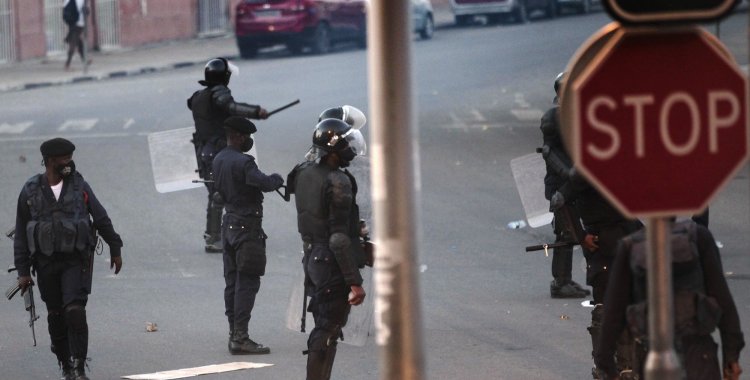The 2023 report "The Global Organized Crime Index" (in its original name) showed that, "although global resilience has largely remained at 2020 levels, crime has continued to grow at a surprising rate in response to heightened political, social, economic and security challenges, showing the difficulties involved in addressing the phenomenon".
The report clarifies that the index is measured on a scale of 1 to 10, ranging from the lowest levels of crime to the highest levels of organized criminal activity. In the case of the resilience index, a score of 1 would indicate low levels of resilience, while a score of 10 indicates high resilience.
Portugal appears in position 104th out of a total of 193 countries whose crime rates were analyzed. The country obtained a score of 4.88, which placed it in 21st position among the 44 European countries.
In the resilience indicator, which calculates a country's level of preparation to deal with organized crime, Portugal obtained a score of 6.50, which placed it in 30th position among the countries with the greatest resilience to crime in the world and 21st position among 44 European countries.
The report cites that Portugal "is mainly a destination country for human trafficking, with labor exploitation being the most prevalent form of this crime (...) It is believed that cases of human trafficking are significantly underreported."
Portugal is described as a transit point for illegal firearms trafficked to Africa and a center for the illegal trade of forest wood, extracted mainly in Brazil, in addition to being a route for drug trafficking from Africa and Latin America.
Regarding Governance, Portugal is assessed as "a stable parliamentary democracy, with a strong record of protecting civil liberties and regular transfer of power between rival political parties. However, concerns persist regarding corruption, legal restrictions on journalism, poor prison conditions and the impact of racial discrimination and xenophobia".
Brazil appears with the highest score in the crime rate among Portuguese-speaking countries, with 6.77, which places the country in 22nd position among 193 nations with the highest crime rate in the world.
With regard to resilience to crime, Brazil scored 4.92 points, ranking 94th among 193 countries.
Cape Verde, along with Mauritius and Rwanda, are among the countries with low crime and high resilience to organized crime in Africa.
According to the report, this Portuguese-speaking country has a crime score of 4.28, which placed it in 142nd position out of 193 countries analyzed.
Equatorial Guinea has a score of 4.38 and is in 135th position, Timor-Leste had a score of 4.08 and is in 150th position. São Tomé and Príncipe has a score of 1.70 and is in 192nd position.
Angola scored 5.58 points, occupying 70th position in the ranking. Mozambique scored 6.20 and is in 42nd position. There is no data for Guinea-Bissau.
With regard to resilience to crime, Cape Verde scored 6.58 points, Timor-Leste 3.83 points, Equatorial Guinea 2.21 points, São Tomé and Príncipe 4.92, Angola 4.50, Mozambique 3.29. There is no data for Guinea-Bissau.
Overall, the African continent continued to record high levels of crime in the two-year period since 2021 when the first edition of the report was released, and remains the second highest scoring continent in the world, behind Asia.
The score, as in 2021, appears to be driven mainly by criminal actors, who, with a score of 5.45, increase the average crime rate in Africa. Criminal markets scored less than 5.05.
The report also highlights the presence of the Wagner Group, a private Russian military company, which has established operations in several African countries, including the Central African Republic, Mali, Sudan, Libya, Mozambique and Madagascar.
According to the report, the group provides military services, including direct paramilitary assistance and training programs, to weakened autocratic governments in need of support in repressing insurgencies and is linked to a network of private entities operating crimes in various sectors, including timber and mining.
"These businesses, combined with widespread corruption in the parts of Africa where it operates, allegedly allow Wagner to profit from illicit economies, especially flora and crimes against non-renewable resources, alongside its legal activities. Some economic entities linked to the Wagner Group are accused of illegal exploration of mineral sources and smuggling", concludes the report.







